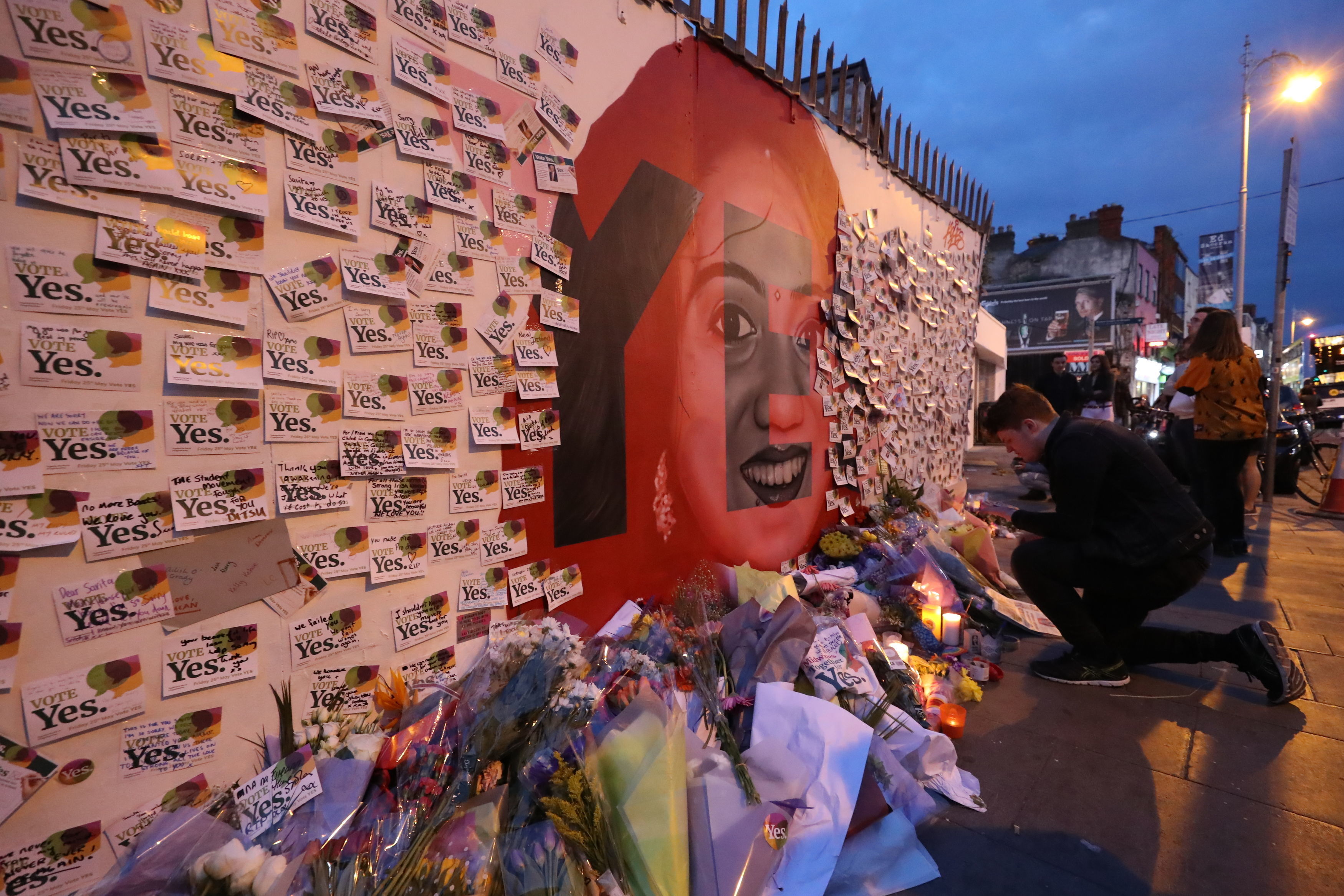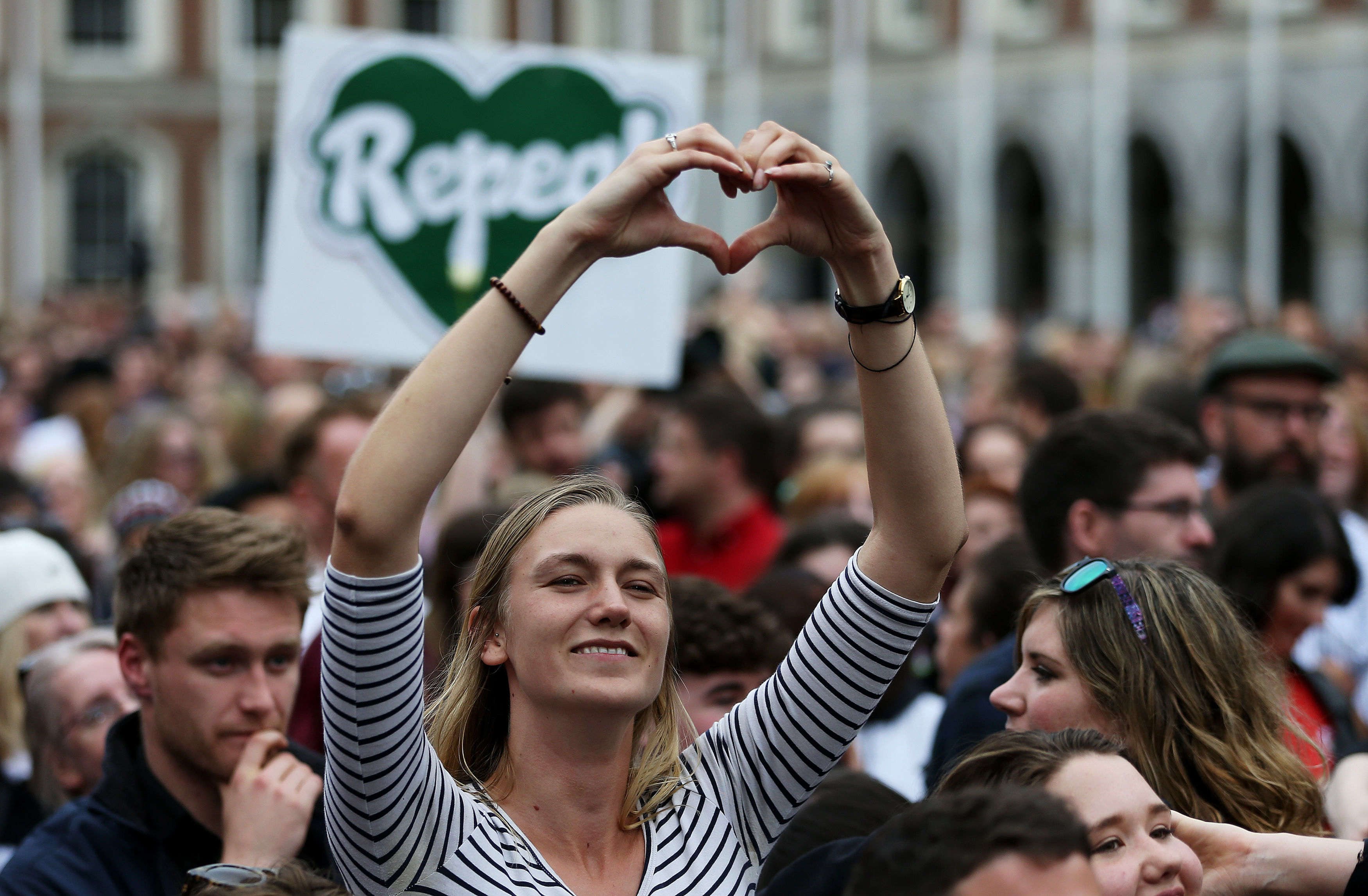An Irish bishop said he hopes Pope Francis' August visit can help bring healing after a referendum that will pave the way for abortion on demand up to 12 weeks' gestation.
In a May 25 referendum, voters opted by a margin of 66.4 percent to 33.6 percent to remove the right to life of the unborn from the constitution.
Bishop Brendan Leahy of Limerick told Massgoers May 26 that the result is "deeply regrettable and chilling" for those who voted "no".
He said "the final result of the referendum is the will of the majority of the people, though not all the people."
"It is a vote, of course, that does not change our position. Our message is one of love: love for all, love for life, for those with us today, for those in the womb," he said.
Referring to Pope Francis' Aug. 25-26 visit, Bishop Leahy said: "In August, we will unite as a family, to renew that sense of family when the World Meeting of Families comes here. We have the privilege of Pope Francis coming, and today I cannot think of his visit being more timely: to come here and remind us of the importance of family, of the love we have of family, of the reality that, yes, families get bruised sometimes, but they should never be broken.
"So we go forward to that moment, we look forward to the healing it will bring and how we will be renewed again in love and care for one another," he said.
Archbishop Diarmuid Martin of Dublin insisted that "the Irish church after the referendum must renew its commitment to support life".
Speaking during a homily at Mass for the ordination to the diaconate of four seminarians at the national seminary in Maynooth, County Kildare, Archbishop Martin insisted that the church is called to be pro-life "not just in words and statements and manifestoes, but to be pro-life in deeds, by being a church which reflects the loving care of Jesus for human life at any stage.
"That loving care includes support to help those women who face enormous challenges and who grapple with very difficult decisions to choose life," he said.
Archbishop Martin said during the homily that "the challenge of witnessing to Jesus Christ in today's world is not an easy one. Many will see the results of Friday's referendum as an indication that the Catholic Church in Ireland is regarded today by many with indifference and as having a marginal role in the formation of Irish culture.
"The church that is called to make present the Jesus who is full of mercy and compassion is seen by many as somehow weak in compassion," he said.
Archbishop Eamon Martin, primate of All-Ireland, said in his homily at Armagh diocesan pilgrimage to the National Marian Shrine in Knock: "The result of Friday’s referendum on the Eighth Amendment confirms that we are living in a new time and a changed culture for Ireland. For the Church it is indeed a missionary time, a time for new evangelisation."
He continued: "During the referendum campaign the Church sought to proclaim the Gospel of Life – that every human life is a precious gift from God – including the lives of all mothers and their unborn children. Choose Life, we said. Every human life is beautiful, every human life is sacred, every human life is precious. This remains true after the referendum result. The right to life is not given to us by the Constitution of Ireland or by any law. All human beings have it ‘as of right’, whether we are wealthy or poor, healthy or sick.
"Like many others who advocated a NO vote in the referendum, I am deeply saddened that we appear to have obliterated the right to life of all unborn children from our constitution and that this country is now on the brink of legislating for a liberal abortion regime.
"I am very concerned about the implications for society of interfering with the fundamental principle that the value of all human life is equal and that all human beings, born and unborn, have inherent worth and dignity. At a time when scientific and medical evidence is clearer than ever about the beginning of life, we have effectively decided that some human lives - in this case the lives of the unborn - are less significant and deserving of protection than others. We have elevated the right to personal choice above the fundamental right to life itself."



 Loading ...
Loading ...